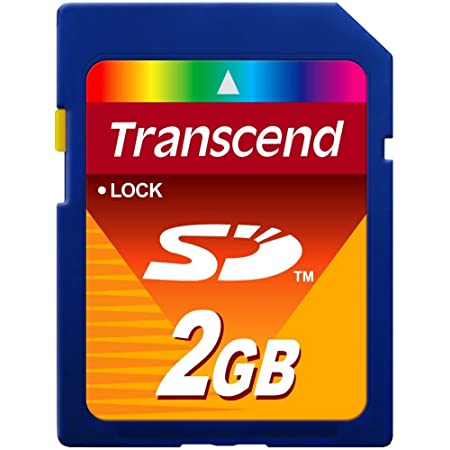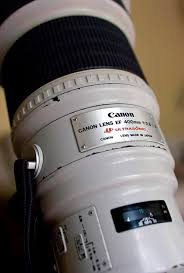
Sports photographers need to be able to capture every moment of the game. You will get the best out of your job if you set up your equipment quickly and stay there for a while. For capturing a lot of images, you need a camera with a large battery capacity and multiple batteries. Of course lenses are important as well.
It is important to research before you become a professional sports photographer
You can pursue a career in sports photography by doing research. An SLR camera, long lenses, and lighting are essential. Auto-focus is essential to capturing fast-moving objects while maintaining the sharpness of the image. It is also important to know how to present yourself professionally.
You should also try to shoot the sport in the region where you will be photographing the athletes, as it will be more exciting if you photograph them in their natural habitat. Photographing athletes in training will make it difficult to capture the best images. To avoid distracting athletes or crowds, use a tripod. Use a high ISO setting when necessary. This will allow the subject to remain in focus and prevent the photographer from chiming the camera at inappropriate times.

Getting a job as a freelancer
If sports are your passion, you may be interested in a career as a freelance sports photographer. However, the field is highly competitive, and you should have a portfolio to prove your abilities. Portfolios can range from a basic photo album to one that is more artistic. It is important to invest in the quality of your portfolio, as this will help you make a good first impression. Below are some tips for starting a career as a freelance sports photographer.
Learn about internships. There are many internships available for sports photographers so that you can gain practical experience in the field. An internship will give you the opportunity to learn new skills, access important sporting events, as well as fill in when a professional photographer is required. Internships offer you the opportunity for feedback and to present your images. You can also work as a freelance photographer for sports and be paid for your efforts.
Equipment needed
There are a variety of different cameras and lenses that can be used to capture sporting events. The quality and appeal of your photos will depend on what camera and lens you use. Some photographers prefer fixed wide angle lenses, while others prefer zoom lenses for capturing action closer to the subject. It doesn't matter what kind of lens and camera you choose, make sure it meets the requirements to sports photography. These are the essential pieces of equipment you need to be a professional sports photographer.
Additionally to your camera, you will need memory cards. Memory cards are often misplaced, so you need to store them in a safe place. You will also need computer photographic software in order to edit and process the images. This software should also be available on a computer. The best way to get started with a sports photography gear list is by following a few tips. These tips will help you get started.

Volunteering
Volunteering in your local area is a great way to get started as a professional sports photographer. You'll get hands-on experience, and exposure. If you're interested, you may be offered a job at a local newspaper. While you should not expect to make a living as a freelance photographer though, you can still learn new skills. It's a great way to gain exposure and, if you're lucky enough, a client.
Networking and building relationships are key to your success in the photography industry, as with all careers. Although volunteering at local sporting events is a great way to start, this kind of work can be very competitive. You will need to have a good understanding of both film and digital photography if you are looking to work on a large scale quickly. Volunteering at sporting activities will give you a unique viewpoint on the game you are shooting. The lowest aperture is best.
FAQ
What makes a good camera bag?
Because it protects your equipment while you are traveling, choosing a camera backpack is crucial. Consider these factors when selecting a bag.
-
To comfortably carry your accessories and camera, choose a large bag. Don't get any bigger than you really need.
-
Durability: Buy bags made of durable materials like canvas, nylon or leather. Avoid plastic and fabric bags.
-
Protection: Make your bag waterproof against dirt, moisture and scratches
-
Organization: To make it easier to find what you need, organize your gear according to type. So, you can place your lenses in one box, your memory cards in another and your battery charger in a third.
-
Comfort: Avoid carrying around a bulky bag when you are shooting. Instead, carry a shoulder belt. Also, look for a comfortable design with padded straps.
-
Price: Shop around to find the best price. Many brands offer their products at discounted prices. This can be a huge advantage.
-
Warranty: Check to see if the company offers a limited warranty. You will know who to call if your bag gets damaged.
How do I learn to take photos on my own?
There are many methods to learn how you can take amazing photos. You have many options. You could purchase a book or attend a class. Or you could join an online group. But if you want to master the art of taking pictures, there's nothing better than doing it yourself! This way you can control what goes into each photograph. You'll only get better as long as your learning continues.
The best thing about digital photography? You don't need any expensive equipment. All you need is an internet connected computer and a camera. The rest is up for you.
These are some suggestions to help you get started.
-
Make sure you are familiar with your camera’s manual settings.
-
Learn the basics of controlling your computer.
-
Take many photos.
-
Edit them.
-
These should be shared.
-
Keep practicing.
-
Experiment.
-
Explore different perspectives and angles.
-
Use light sources creatively.
-
Practice makes perfect.
-
Be willing to fail.
-
Be patient.
-
Have fun
How can you become a skilled photographer?
Photography is an art form that requires patience, dedication, passion and dedication. Photography is a passion. You will be able to do much more than if your goal was to make a buck.
It is essential to understand how to use your camera effectively. You need to be able to comprehend composition, lighting, exposure, depth-of-field, and other aspects of photography. Also, you will need to be able to use Photoshop.
It is hard to master photography, but it is worth the effort.
You can improve your skills by reading books, attending classes, and participating in competitions. This will allow you to gain confidence and experience which will result in improvement. What equipment do I need?
It really depends on what kind of photography you like to do. You will need a wide angle lens if you want to photograph landscapes.
A telephoto lens will be a must if you are interested in portrait photography.
A tripod is crucial for taking photographs. It allows you stand up and compose your photo without moving.
Camera bags are useful for carrying your memory cards and other accessories.
If you are using a compact lens, a flash is needed.
For beginners looking to capture professional-quality photos, a DSLR (Digital Single Lens Reflex Camera) is the best option.
DSLRs are very popular as they let you control all aspects of your photos, such as shutter speed, aperture and ISO sensitivity. They also provide a range of features such as autofocus, auto-exposure lock, self-timer, bracketing, and RAW format.
Is photography a rewarding job?
Photography is an artistic form that allows one to capture and share moments in time. If you're willing to work hard, it can also be a great way of making money. There are many opportunities to make a career as a professional photographer. You could start by taking pictures for friends and family as a hobby. This will improve your skills and increase confidence. Once you have completed this stage you can move on and take on paid assignments. The best photographers can make a living as a photographer. Photographers may be asked to photograph people at parties and weddings. However, most professionals prefer to shoot commercial projects such as product shots or advertisements.
The key to becoming a successful photographer is to find out what type of photography you enjoy. Continue to practice, experiment and learn new techniques until your skills are perfected. It is impossible to replace the experience of being in this position. Don't expect instant success.
When you are just starting out with photography, it is important to first master technical skills. Then, focus on creativity. Photography involves both artistic and technical aspects. Learning to use the right tools and understand the basics of composition will help you succeed faster.
It is important to consider whether you are interested in a full-time career or if you would like to work part-time. Some people combine their passions for photography with other careers. A freelance assignment might allow you to work in a local paper or magazine, while still pursuing your passion for photography. Others may choose to devote their whole time to photography. You have to put in the effort and be committed to any creative endeavor.
If you're serious about making a career in photography, you will need to invest a lot of time and effort. Think carefully about whether or not you are really ready to give your time and effort to this type of endeavor.
Statistics
- While I cannot prove that all of those spots were not sensor dust, the photo was taken during a heavy snowstorm…so I guess that 99.8% of the spots are snowflakes. (bhphotovideo.com)
- There are people out there who will pick at flaws they can only see in 100% crops of your photos. (wikihow.com)
- In this case, 100% of readers who voted found the article helpful, earning it our reader-approved status. (wikihow.com)
- The second easiest way to get blurry photos 100% of the time is to use a cheap filter on the front of your lens. (photographylife.com)
External Links
How To
How to Take Portrait Photos
Portraits are important because they show who you are. Portraits also tell your story. While you may have one favorite photo of yourself as a child, you now want to take something different. It is easy to forget how much fun it can be to take pictures. These are some tips that will help you get started.
-
Make sure you have enough light. Portraits are best taken in the morning or late at night. Avoid direct sunlight shining directly onto your face, if flash is used. This will wash out any details. Avoid shooting at noon. Too many shadows will result.
-
Use a tripod. The camera will not move if it is held still. This means that you will miss the opportunity to freeze motion. Also, if you do plan on using a flash, prepare your shot without it. You can then turn the flash off and try again.
-
Shoot close-ups. Closeups allow you to show detail. But they can look fake unless you've got a good eye. Pay close attention to people's eyes and noses. Are you noticing anything odd? Do you see someone with glasses? Are there freckles under her nose or on her eyes? These details add depth to an individual's appearance.
-
Don't force smiles. Smiles are tricky. People smile when they feel happy. But some people don't. You can't force smiles, because it looks forced. You should think about what makes your laugh. You might find something silly, like a cat leaping through a hoops. Perhaps you simply love watching paint dry. Whatever it is, think about it until you find yourself laughing.
-
Get creative. People are often afraid of being boring. But being ordinary isn't bad. Be creative and find ways to escape the norm. You could ask your friend to put his hands behind his back and pose with them. Perhaps you could suggest having him put on a funny hat.
-
Keep practicing. It will take you a lot of practice to improve at taking photos. As you improve, you will be able to see more interesting events around you.
-
Have fun. Photographing should be fun. Enjoying the process will make you more likely to go back. Plus, you'll probably end up with some really cool shots.
-
Show off your work. After you've learned how to take beautiful pictures, share them among your friends and family. Tell them why it was taken. Show them the place you were. Tell them what you did.
-
Be patient. Sometimes, you won't get it right. It happens for everyone. Don't worry. Don't worry. Just move onto another image.